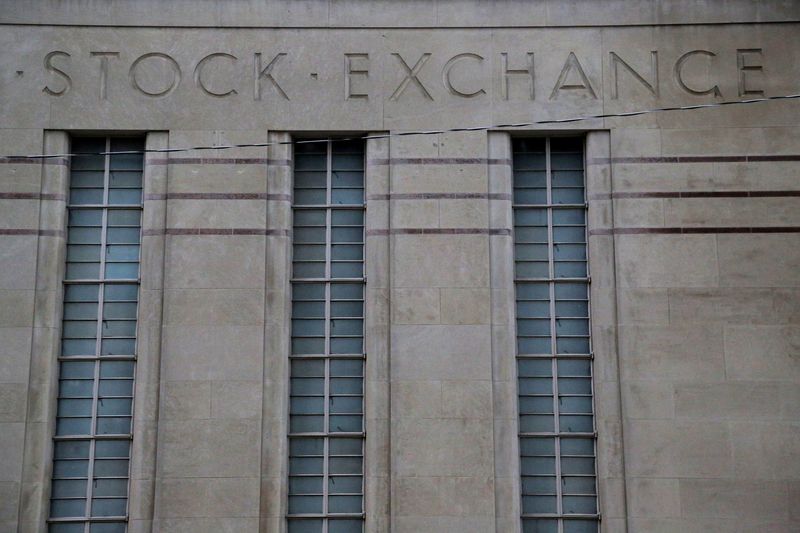TSX falls as energy, material stocks weigh
2022.10.14 11:27
[ad_1]

© Reuters. The Art Deco facade of the original Toronto Stock Exchange building is seen on Bay Street in Toronto, Ontario, Canada January 23, 2019. REUTERS/Chris Helgren
By Johann M Cherian and Shashwat Chauhan
(Reuters) – Canada’s main stock index fell on Friday, led by declines in energy and material shares after data showed domestic factory sales fell for a fourth straight month, with investors also digesting the Russian president’s comments on no plans for further military mobilization.
At 10:30 a.m. ET (14:30 GMT), the Toronto Stock Exchange’s S&P/TSX composite index was down 115.54 points, or 0.62%, at 18,498.09, erasing opening gains.
Canadian factory sales fell by 2% in August, hit by lower sales in petroleum, coal and chemicals as per Statistics Canada. A separate report showed Canadian home sales fell 3.9% in September with actual monthly activity about 12% below the pre-pandemic 10-year average.
“We are in a slowing growth environment, but not in a recession, as potentially the narrative suggests”, said Angelo Kourkafas, investment strategist at Edward Jones Investments.
“The interest rate sensitive sectors of the market like housing is cooling down at a meaningful pace.”
The materials sector lost 2.5%, while the energy sector dropped 1.6% as commodity prices slipped amid recessionary fears.[MET/L][GOL/][O/R]
TSX opened sharply higher on Friday, in line with its U.S. counterpart, amid speculation of a British government U-turn on fiscal plans that have contributed to financial market volatility in recent weeks.
Analysts said Canadian Prime Minister Justin Trudeau’s government should take heed from the UK turmoil and avoid new stimulus when it updates its fiscal plans this fall.
Meanwhile, geopolitical tensions also appeared to ease after Vladimir Putin said there was no need for massive new strikes on Ukraine and that Russia was not looking to destroy the country.
The TSX has lost 12.9% so far this year after the Russia-Ukraine war spiraled commodity prices across the globe, leading to inflation, and forcing central banks to tighten policy aggressively even if it risks a recession.
The CPP Investment, Canada’s largest pension fund, is hunting for bargains amidst persistent market volatility, which is expected to continue given ongoing geopolitical tensions and a sticky inflation, CEO John Graham said on Friday.
[ad_2]
Source link








